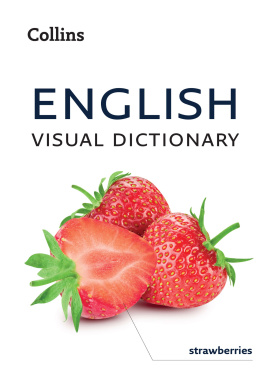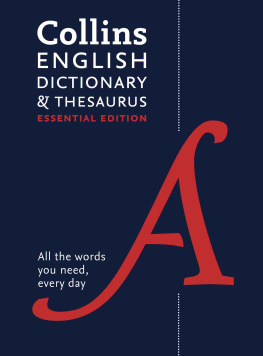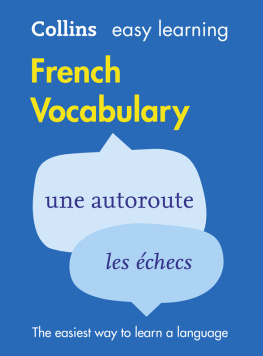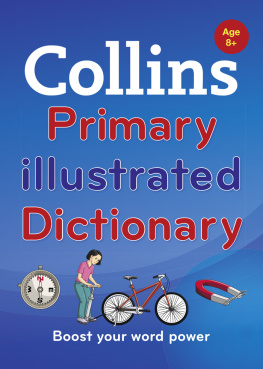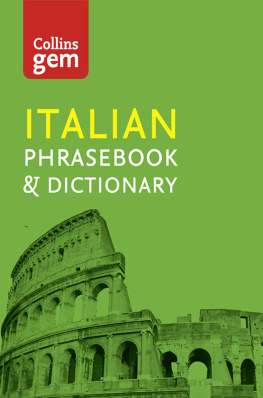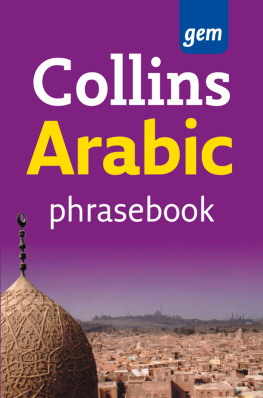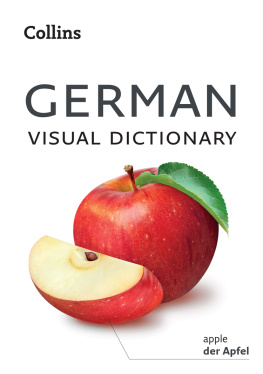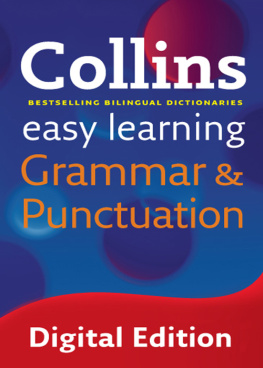Collins Dictionaries - Collins Common Errors in English
Here you can read online Collins Dictionaries - Collins Common Errors in English full text of the book (entire story) in english for free. Download pdf and epub, get meaning, cover and reviews about this ebook. year: 2013, publisher: HarperCollins Publishers, genre: Children. Description of the work, (preface) as well as reviews are available. Best literature library LitArk.com created for fans of good reading and offers a wide selection of genres:
Romance novel
Science fiction
Adventure
Detective
Science
History
Home and family
Prose
Art
Politics
Computer
Non-fiction
Religion
Business
Children
Humor
Choose a favorite category and find really read worthwhile books. Enjoy immersion in the world of imagination, feel the emotions of the characters or learn something new for yourself, make an fascinating discovery.

- Book:Collins Common Errors in English
- Author:
- Publisher:HarperCollins Publishers
- Genre:
- Year:2013
- Rating:4 / 5
- Favourites:Add to favourites
- Your mark:
- 80
- 1
- 2
- 3
- 4
- 5
Collins Common Errors in English: summary, description and annotation
We offer to read an annotation, description, summary or preface (depends on what the author of the book "Collins Common Errors in English" wrote himself). If you haven't found the necessary information about the book — write in the comments, we will try to find it.
Collins Dictionaries: author's other books
Who wrote Collins Common Errors in English? Find out the surname, the name of the author of the book and a list of all author's works by series.
Collins Common Errors in English — read online for free the complete book (whole text) full work
Below is the text of the book, divided by pages. System saving the place of the last page read, allows you to conveniently read the book "Collins Common Errors in English" online for free, without having to search again every time where you left off. Put a bookmark, and you can go to the page where you finished reading at any time.
Font size:
Interval:
Bookmark:


Westerhill Road
Bishopbriggs
Glasgow
G64 2QT HarperCollins Publishers 2013 ISBN 978-0-00-750612-5 Collins is a registered trademark of HarperCollins Publishers Limited www.collinslanguage.com A catalogue record for this book is available from the British Library EPUB Edition August 2013 ISBN 978-0-00-754234-5 Version: 2013-09-18 All rights reserved under International and Pan-American Copyright Conventions. By payment of the required fees, you have been granted the non-exclusive, non-transferable right to access and read the text of this e-book on screen. No part of this text may be reproduced, transmitted, downloaded, decompiled, reverse engineered, or stored in or introduced into any information storage and retrieval system, in any form or by any means, whether electronic or mechanical, now known or hereinafter invented, without the express written permission of HarperCollins.Acknowledgements
We would like to thank those authors and publishers who kindly gave permission for copyright material to be used in the Collins Corpus. We would also like to thank Times Newspapers Ltd for providing valuable data. All rights reserved. No part of this book may be reproduced, stored in a retrieval system, or transmitted in any form or by any means, electronic, mechanical, photocopying, recording or otherwise, without the prior permission in writing of the Publisher.
This book is sold subject to the conditions that it shall not, by way of trade or otherwise, be lent, re-sold, hired out or otherwise circulated without the Publishers prior consent in any form of binding or cover other than that in which it is published and without a similar condition including this condition being imposed on the subsequent purchaser. Entered words that we have reason to believe constitute trademarks have been designated as such. However, neither the presence nor absence of such designation should be regarded as affecting the legal status of any trademark. HarperCollins does not warrant that www.collinsdictionary.com, www.collinslanguage.com or any other website mentioned in this title will be provided uninterrupted, that any website will be error free, that defects will be corrected, or that the website or the server that makes it available are free of viruses or bugs. For full terms and conditions please refer to the site terms provided on the website. WRITTEN BY
Elizabeth Walter
Kate Woodford EDITOR
Gerry Breslin FOR THE PUBLISHER
Lucy Cooper
Kerry Ferguson
Elaine Higgleton
Whether you are preparing for an exam, writing an essay, or you simply want to make sure that your English is as accurate as possible, Collins Common Errors in English offers you the information you need in a clear and accessible form. This book is in several parts: The first sections are organized by part of speech. In short, clear paragraphs, they explain the most common errors connected with each part of speech. For instance, the section on verbs covers areas such as using the correct preposition after a verb, and how to avoid mistakes with modal verbs and phrasal verbs. These sections also include information on tenses and making sentences. The next sections focus on choosing the right word.
There are many reasons why it can be easy to confuse words. It may be because they sound the same or look similar (eg board/bored, desert/dessert), because they have similar but slightly different meanings (eg continual/continuous, blame/fault), or because it is easy to confuse the different parts of speech (eg breath and breathe). Many mistakes are made because of a confusion with another language (eg actual/current, library/bookshop), and these sections deal with those errors too. After this come the topic sections, which cover areas which are often prone to a lot of mistakes, such as time, travel, and numbers. For each of these, clear information is given to help you talk about the topics confidently and accurately. Finally, you will find information on common mistakes with punctuation and spelling, followed by several pages of exercises which you can use to test what you have learned or to see where you need more help.
Within each section, mistakes are introduced with clear headings. There is also a comprehensive index and a helpful glossary at the end of the book to help you find all the information you need. For more information about Collins dictionaries, you can visit us at www.collinslanguage.com.
Font size:
Interval:
Bookmark:
Similar books «Collins Common Errors in English»
Look at similar books to Collins Common Errors in English. We have selected literature similar in name and meaning in the hope of providing readers with more options to find new, interesting, not yet read works.
Discussion, reviews of the book Collins Common Errors in English and just readers' own opinions. Leave your comments, write what you think about the work, its meaning or the main characters. Specify what exactly you liked and what you didn't like, and why you think so.

